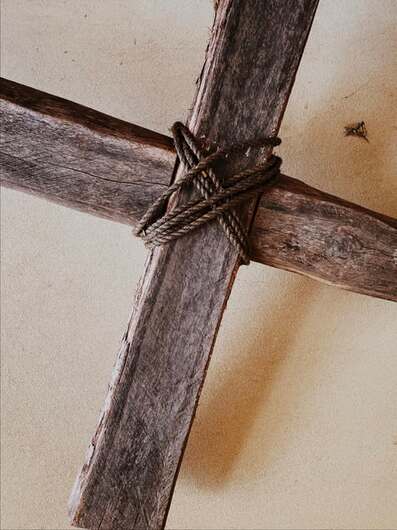- HOME
- INTRODUCTION
-
FOUNDATIONS
- A PERSONAL RELATIONSHIP WITH GOD
- A BRAND NEW LIFE >
- THE GRACE OF BAPTISM
- THE POWER OF BIBLICAL BAPTISM
- THE HOLY SPIRIT AND YOU >
- THE POWER OF THE CROSS
- MISSING THE MARK: OVERCOMING GUILT AND SHAME
- GODS PROMISE OF PROVISION
- EXPERIENCING GODS PRESENCE
- PSALM 91 (PASSION TRANSLATION)
- WHO AM I REALLY?
- WHERE DO WE COME FROM?
- MEET THE MAKER...
- NEW MINDSETS
-
KINGDOM LIVING
- THE GIFT OF RIGHTEOUSNESS
- BEING FRUITFUL
- SLAYING GIANTS
- HOPE FOR THE HURTING
- DEVELOPING LIFE RHYTHMS
- THE RHYTHM OF DEVOTION PART 1
- THE RHYTHM OF DEVOTION PART 2
- THE RHYTHM OF SABBATH
- THE RHYTHM OF FESTIVAL
- THE RHYTHM OF SEASONAL LIVING
- THE RHYTHM OF PLAY
- THE RHYTHM OF MEALTIMES
- THE RHYTHM OF COMMUNITY
- THE RHYTHM OF SOLITUDE
- BLOG
- CONTACT
HELP! I'M FALLING SHORT
We live in a world where there is a huge demand to measure up to expectations: from ourselves, our parents, our work places, local churches, and a host of others, all egged on by media advertising. The stress this produces is the cause of, at best, a loss of personal well-being, and at worst, mental and physical illness. With the failure to measure up, both perceived and actual, comes guilt, shame and anxiety. We need to find peace in the midst of it all...
STANDARDS OF PERFECTION
|
In our media-dominated world we are surrounded by images of perfection: body, hair, skin, family, house, meal—whatever it is, there’s an image of it somewhere. And we are led to believe we can have this perfection, if we will only follow these five steps, or buy that product. Then, when we fail to measure up, we have feelings of guilt, shame and anxiety to deal with. But still the aspiration lurks enticingly in the subconscious.
And alongside the visual imagery we have the self-help gurus who insist we can have it all—if we follow their example.
|
We are told the perfect man or woman is fit and well-toned, eats a bewildering array of ‘life-giving’ foods, in addition to a rich variety of supplements with exotic names. They hold down high-powered jobs, parent the rising stars of tomorrow, are well-travelled and well-read, have interesting hobbies, masses of friends and still find time for voluntary work!
The sense of inadequacy these images of perfection engender in ordinary mortals either produces frenetic activity, or a rush to the comfort of the biscuit tin.
DEMANDS OF THE WORKPLACE
|
The idea of perfection also features strongly in the realm of employment, only there it’s called 'excellence'. If we will only work harder, faster or smarter we too will make super-employee status with all its benefits. And many of us try, working long hours to achieve targets, only to find, somewhere along the way, the goal posts have moved yet again. And if we are by chance, one of the fortunate few who have measured up for a while, and ticked all the boxes, then we live with the stress of trying to maintain that exalted place. Reproach hangs over the workplace, ready to settle on those found wanting.
|
CHURCH EXPERIENCE
It is often no better in the church. If you love Jesus, there is frequently the expectation that you will show your commitment by serving more, supporting this or that programme or ministry, and, of course, attending every meeting. Add to that Bible studies and prayer groups, conferences and special events, no wonder the way to Heaven is littered with exhausted Christians.
SINAnd then there’s the guilt which comes from the unfashionable word ‘sin’, which in modern idiom masquerades as bad habits, weaknesses and negative tendencies. Whether we describe it as ‘sin’ or not, our habits of over-eating, bad temper, dishonesty, cheating, one-upmanship, or whatever, bring shame on us, a shame that gnaws at our inner being.
In addition, there’s the guilt which comes from omission—the host of things we think we could have done, or should have done. This guilt can be harder to shift as it is often non-specific, just a general sense of having fallen short. |
In all these things we wear reproach like a garment: the reproach of people around us, and our reproach of ourselves. We have that sense of having been found wanting, and either fall into depression, or ramp ourselves up for another attempt. Where there is reproach, there is no rest.
BORN FOR GLORY
We know inwardly that we were born for something better than this [Hebrews 2:10]. The Bible pinpoints this condition, saying:
' for all have sinned and fall short of the glory of God'
[Romans 3:23]
[Romans 3:23]
But it doesn’t just point a finger, it offers the ultimate solution.
The truth is there is only one who is perfect or excellent, and that is God. In the human heart there is a subconscious understanding—a vision of the God of glory, and the perception that man was originally designed to live in that glory too. Our efforts after perfection are attempts to regain that place.
But man’s innate shortfall stands in the way. No one can get anywhere close to the glory of God.
The truth is there is only one who is perfect or excellent, and that is God. In the human heart there is a subconscious understanding—a vision of the God of glory, and the perception that man was originally designed to live in that glory too. Our efforts after perfection are attempts to regain that place.
But man’s innate shortfall stands in the way. No one can get anywhere close to the glory of God.
JESUS BRIDGED THE GAP
|
Enter Jesus.
Jesus came to bridge the gap. He came to show us what it was supposed to be like: a sinless man walking in harmony with a holy God. When He was crucified, He took the judgement for our shortfall, by taking all our guilt and failures on Himself. Dying naked, viewed by disappointed followers, and jeering crowds, He knew all about shame and reproach. And He endured all this so we could be free. And so we step into rest by acknowledging our state. We have to put down our pride, and admit we have been found wanting, that we can’t do it on our own. This isn’t just something we do to enter the Christian life, then once safely in, we go back to our own efforts at living. This must be our lifestyle from now on: we haven’t got what it takes—and it’s ok! Acknowledging our state of failure will take us into despair, unless we add the second step: to trust that Jesus bridged the gap through His death on the Cross. |
He has already paid the price for my failures, so I am free. I don’t need to earn anything—He has done it all.
He is calling me to live in the glory with Him, to fill me with Himself.
Responding is a no-brainer—we get to exchange our stress, our guilt, our sense of shame and reproach for His peace.
That completeness and freedom from failure is known in the Bible as ‘righteousness’. But rather than a list of ‘oughts’ or rules for living, New Testament righteousness is a gift from the Father purchased through Jesus’ sacrifice—which we can do nothing to merit. He took all our failures, so we could have His wholeness.
It’s out of that place of completeness and freedom that we can live a new life; and that new life, rather than being externally imposed, can flow from the inside-out.
We get to live in the glory after all.
That completeness and freedom from failure is known in the Bible as ‘righteousness’. But rather than a list of ‘oughts’ or rules for living, New Testament righteousness is a gift from the Father purchased through Jesus’ sacrifice—which we can do nothing to merit. He took all our failures, so we could have His wholeness.
It’s out of that place of completeness and freedom that we can live a new life; and that new life, rather than being externally imposed, can flow from the inside-out.
We get to live in the glory after all.
|
QUESTIONS PEOPLE ASK…
How do I stop feeling guilty? How can I have a clear conscience? HAVE YOU GOT A QUESTION? |
New Testament righteousness is a gift from the Father purchased through Jesus’ sacrifice—which we can do nothing to merit. He took all our failures, so we could have His wholeness. www.rhythmsofgraceuk.org/overcoming-guilt-and-shame Click to Tweet |
*RHYTHMS OF GRACE:
RECEIVE His wonderful provision
Get really quiet inside.
Centre your heart on God, and listen…
Then pray:
Lord Jesus, I know how much I fall short of glory, and that I often wear reproach like a garment. I cannot measure up to the standards of perfection that surround me. You came to fill the gap, You have already paid the price for my sin and my failures:
- Everything I shouldn’t have done, but did anyway
- Everything I could have done but didn’t
- Every wrong choice and decision
- Every wrong thought, wrong speech and wrong action
- Every failure in self-discipline
- Every failure to meet expectations and measure up
- Every bit of poor quality work
- Every bit of guilt and shame
- Every failed attempt to be perfect
- Every…
You received all the judgement for my failures in Your body, so that I can stand complete and whole before the Father; and You washed me clean by shedding Your blood so my conscience can be completely clear.
I choose to trust in Your provision. I exchange my stress, guilt and reproach for Your peace. Come and fill me with Your glory!
Put out your hands and receive from Him right now.
GIVE FREELY because you are blessed
Enjoying a new freedom from guilt, shame and anxiety? Why not share your experience of God’s grace?
*For more information on how the term ‘rhythms of grace’ is used on this website, please see the INTRODUCTION TO RHYTHMS OF GRACE: A JOURNEY INTO REST AND PEACE.
You can also read more about THE GIFT OF RIGHTEOUSNESS in the Kingdom Living Section.
GOD'S PROMISE OF PROVISION
Continue to the next foundation page...
RHYTHMS OF GRACE: A JOURNEY INTO REST
[Photo credits: Marc A. (dartboard); Patricia Serna (tape measures) ; Andreas Klassen (productivity);
Brut Carniollus (despair); Jon Tyson (cross)@ Unsplash, with thanks.]
Brut Carniollus (despair); Jon Tyson (cross)@ Unsplash, with thanks.]
|
All text and photographs,
unless otherwise credited © rhythmsofgraceuk.org All rights reserved. |
**The owner of this website, www.rhythmsofgraceuk.org is a participant in the Amazon Services LLC Associates Programme. This is an affiliate advertising programme which earns fees for sites which advertise and link to products supplied by Amazon properties, including, but not limited to, amazon.com, and amazon.co.uk.
Please note: commissions are supplied by Amazon; there are no hidden costs for visitors to this website, and all resources shown are genuine recommendations, CONTACT ME
|





